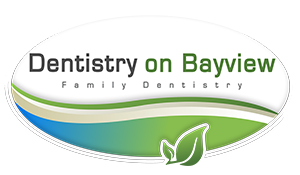Many people dream of having a bright, white smile. Tooth whitening is becoming an increasingly favoured technique to wipe out those tell-tale spots and have nice teeth. Yet one major issue remains – is teeth whitening safe? Once you know about the mechanism involved, potential pitfalls, and doing it correctly with maximum safety can make the wise decision.
Teeth whitening employs a certain type of chemical, such as hydrogen peroxide, to lighten the stains from the outer surfaces of teeth. These are stains caused by products such as coffee, tea, smoking, and aging. It can be both safe and successful if it is done right, but prior knowledge of its advantages and disadvantages will help prevent this procedure.
How Does Teeth Whitening Work?
Teeth bleaching agents lighten the stain by breaking it up on the enamel. The most widely used include:
- Professional Whitening – A dentist places a high-concentration whitening gel on teeth for fast and dramatic results.
- At-Home Whitening Kits – These include strips or trays with a lower concentration of whitening agents.
- Whitening Toothpaste – Removes surface stains but does not alter the natural tooth colour.
Each has its advantages, and the appropriate one is based on your needs and oral health.
Potential Risks of Tooth Whitening
Teeth whitening is normally safe, but there are some side effects to be aware of. These are:
- Tooth Sensitivity – Momentary pain when consuming hot or cold foods
- Gum Irritation – Slight irritation if the whitening gel mistakenly comes into contact with the gums.
- Uneven Whitening – Fillings, crowns, and veneers won’t whiten along with your natural teeth, causing uneven coloration.
- Enamel Damage – Excessive use of whitening products can erode tooth enamel in the long run.
Understanding what are the risks of teeth whitening will assist you in determining if the treatment is suitable for you.
Who Should Not Have Teeth Whitening?
Although teeth whitening is safe for most individuals, some should exercise caution or consult a dentist before attempting it. They include:
- Pregnant or Nursing Women – The effects of whitening products during pregnancy are not adequately studied.
- Sensitivity of the Teeth – The whitening treatment can exacerbate sensitivity.
- Those with Gum Recession or Tooth Decay – Pain can be triggered by whitening products if dental conditions are left untreated.
- Individuals with Dental Work – Fillings and crowns will remain unchanged in colour, resulting in an ununiform appearance.
It is always advisable to consult a professional before embarking on any whitening treatment.
How to Whiten Teeth Safely
To whiten teeth safely and maintain healthy teeth, do the following:
- Get Professional Help – A visit to the dentist for teeth whitening in North York guarantees safe and successful results.
- Follow Instructions – Whitening products overuse can damage teeth, so always follow the instructions.
- Use Sensitivity Toothpaste – If whitening has caused sensitivity, a special toothpaste can help.
- Avoid Staining Foods – Coffee, tea, and darker foods can stain teeth, so reducing them helps to keep results lasting longer.
- Maintain Good Oral Hygiene – Brushing and flossing daily keeps teeth healthy and clean.
Professional teeth whitening is the safest means of achieving long-lasting results.
Do Natural Whitening Remedies Work?
Other individuals attempt natural treatments to bleach teeth, but these are not always successful. Some of the popular choices are:
- Baking Soda – This can eliminate surface stains but does not whiten teeth intensely.
- Hydrogen Peroxide – Used in whitening products, but improper use can weaken enamel.
- Oil Pulling – Swishing oil around in the mouth might enhance the health of the mouth but won’t do a lot to bleach teeth.
For optimal results, professional whitening is suggested over home treatments.
How Long Does Teeth Whitening Last?
The effects of teeth whitening are not permanent. The lifespan varies based on the treatment process and lifestyle routines. Here’s how long the various treatments generally last:
- Professional Whitening – Can last six months to three years with proper maintenance.
- At-Home Whitening Kits – Typically last several months and require frequent touch-ups.
- Whitening Toothpaste – Strips away only surface stains, so the effect might not be visible.
In order to have teeth whiter for a longer period of time, one must practice good oral hygiene and avoid foods that stain.
Can Teeth Whitening Harm Enamel?
One of the most asked questions is if whitening products damage enamel. They do not do any permanent damage if used as directed. Too frequent use of whitening treatments or improper application can damage enamel in the long run.
How to defend your enamel:
- Do Not Excessive Use of Whitening Products – Adhere to the recommended use guidelines.
- Use a Soft-Bristle Toothbrush – Harsh brushing may erode enamel.
- Select Fluoride Toothpaste – Fluoride fortifies enamel and protects against damage.
By doing these steps, you can whiten your teeth safely without damaging your enamel.
Get Safe Whitening from a North York Dentist
Teeth whitening serves as a useful method to improve your smile, yet you must perform it correctly. The right approach to whitening teeth along with proper safety precautions will help you prevent damage to your gums and teeth.
To achieve safe and effective whitening results, visit Dentistry on Bayview, where our North York dentist team will help you. Our dental practice delivers professional dental care that restores your smile and provides tooth whitening services without harming your teeth. Schedule your appointment by contacting us right away.

